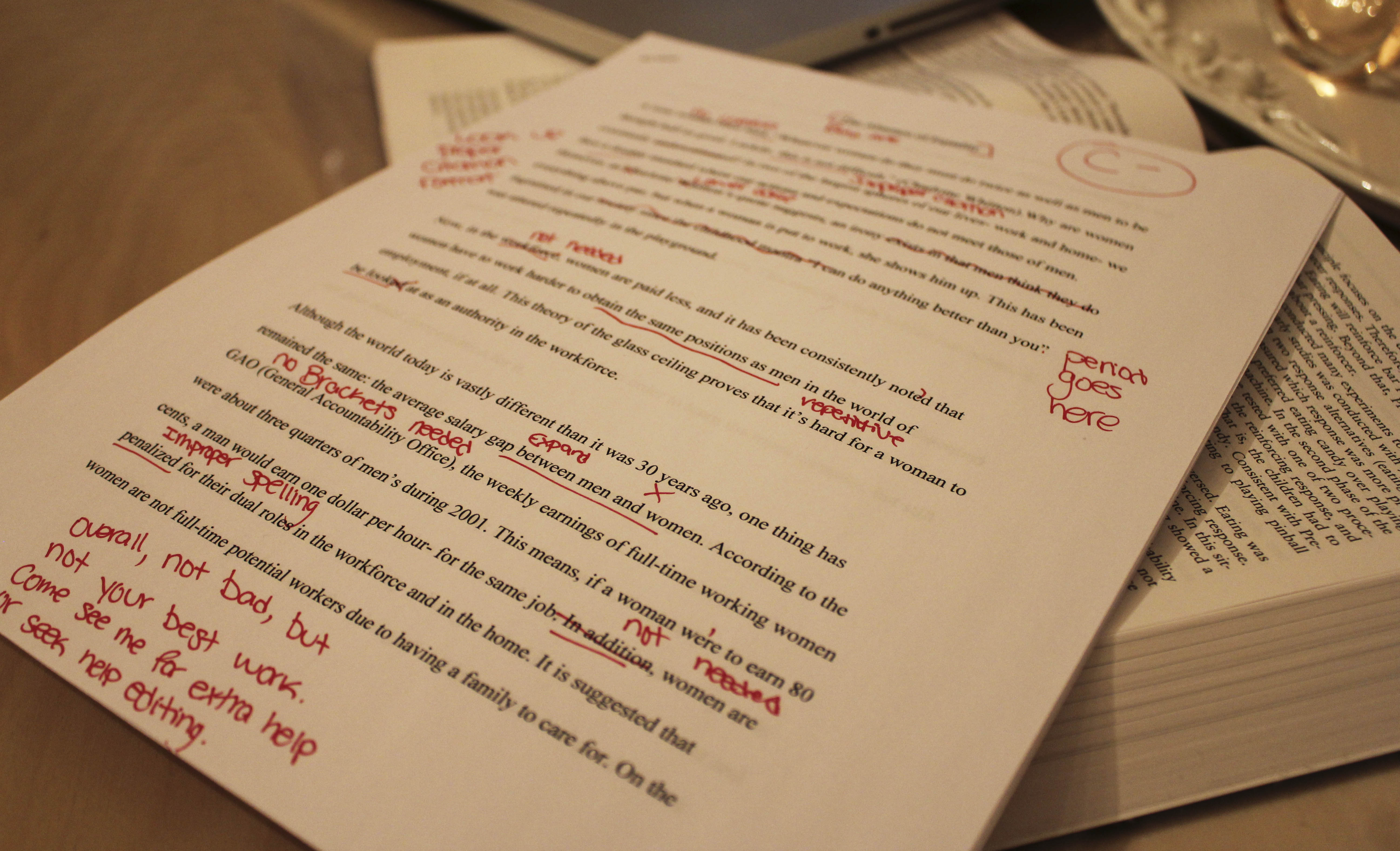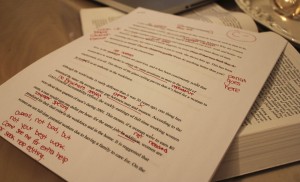Better writer, better grades

As another semester gets into the early stages of preparing writing assignments, the stress and expectations of essay writing become a challenge for students wanting to receive good marks.The pressure and judgment is laid right on paper, giving the professor and their red pen the opportunity to dive in and mark up what was wrong, acceptable and the final call with the mark it deserves.
One of the most common questions received by writing tutors is not how to improve one particular aspect of an essay, but what are the steps one can take to ensure a stronger essay in the future. Addressing this may seem like a tall order, but the only comment I could ever think of offering is relatively straightforward: the best writers have the most confidence in what they are writing. The last minute, lack lustre papers that many students produce is most often the culprit when it comes to low-tier grades, as there is seldom much time or energy invested into making them respectable.
I’ve always hated being told that practice makes perfect, but I really cannot stress enough how much of an impact it has on one’s confidence in academic writing. When one writes more papers in more classes, they gain more experience and develop a larger bank of tricks to use at their disposal. Having awareness of what you can and cannot do on the page, through trial and error or consultations with resources like the writing centre, are excellent ways to boost confidence in your assignments.

Since different programs require different amounts of writing than others, the odd paper in an essay-light discipline can seriously impact the confidence of someone who hasn’t written formally since high school. One of the best solutions to this is, practicing and using the resources that are at-hand to evaluate your progress and ensure that your final submission is worthy of your respect.
Another critical component to being proud of what you produce is developing a familiarity with the assignment itself. Students often ask tutors what they can and cannot do in their assignment, and a majority of the time it boils down to what the professor gives them permission to do. Assignment sheet handouts are arguably one of the most valuable resources for a writer because they walk you through exactly what your professor wants to see.
Most common in first-year classes, profs will often specify whether or not things like subheadings are acceptable, or how many secondary sources are required. As such, many of these instructions are not law, and should be taken with a grain of salt when considering another assignment for another class. What one professor in one class demands, another may not even notice the difference, and developing your awareness of how to please the people marking you begins with their instructions. If the instructions are vague or even non-existent, the ultimate resource of all remains: discussing your questions or concerns with the professor directly.
Not only do you get the clearest possible directions, but you also build rapport with the faculty in your program, and receiving salutations in the hallway or an invitation for a cup of coffee is arguably one of the biggest confidence-builders of all.
Gordon Davidson is a writing tutor at The Writing Center located in the DAWB 1 – 102. If you have any questions about your upcoming assignments, go to www.wlu.ca to find out more information on how to book an appointment or stop by during their drop-in hours.


